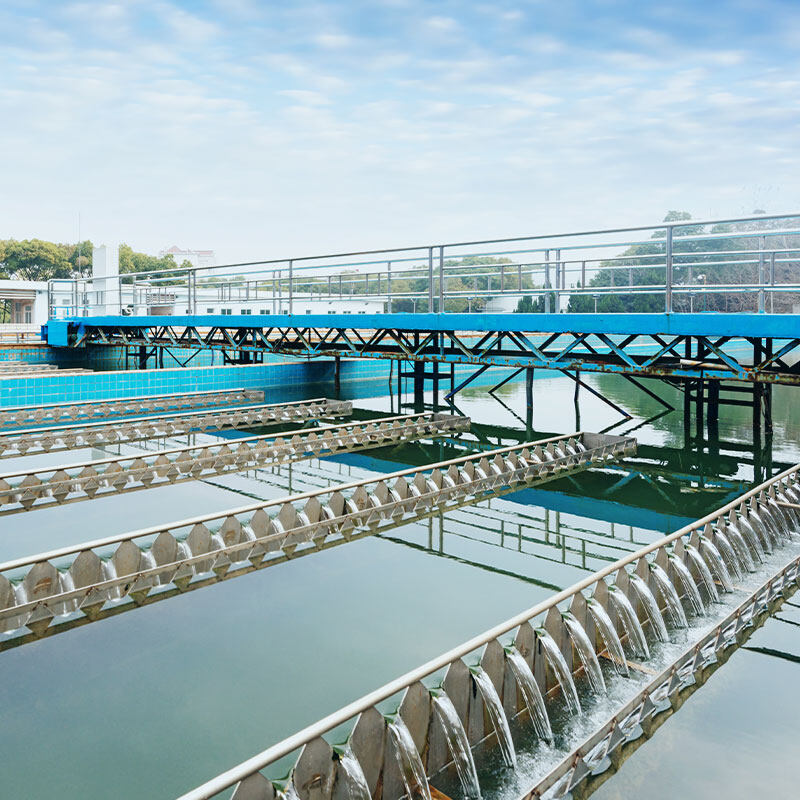Attentions for using conditioner(Dehydrating Agent )
There is no fixed standard for the consumption of chemicals for sludge conditioning. The dosage will vary according to the specific properties of sludge, such as type, digestion degree and solid concentration. Therefore, most of the tests are conducted in the laboratory or on the site to determine the type and specific dosage of the conditioner.
Determination of Conditioner Dosage
Generally speaking, according to the percentage of dry solid weight of sludge, the dosage of ferric chloride is 5%~10%, ferrous sulfate is about 10%~15%, slaked lime is 20%~40%, polymeric aluminum chloride and polymeric ferric sulfate are about 1%~3%, and cationic polyacrylamide is 0.1%~0.3%.
According to relevant data, due to the high price of commonly used polyacrylamide series organic synthetic polymer conditioners (some varieties are more than ten or even twenty times more than ordinary inorganic conditioners), although their dosage is small, the cost of using organic synthetic polymer conditioners is still high, equivalent to the cost of conditioning each ton of sludge.
The general practice is to optimize inorganic conditioners. When inorganic conditioners have poor effects and are difficult to achieve ideal conditioning effects, consider using organic synthetic polymer conditioners or mixing inorganic and organic conditioners.
Precautions for Using Conditioner
In order to better use the conditioner, the following matters should be noted:
Fully understand and master the nature (concentration, composition, etc.) of the treated sludge, test to determine the type of conditioner suitable for the nature of sludge and dehydrator, test to determine the injection point, reaction conditions, dosage, etc. of the conditioner, and determine the dissolution, storage and other use methods of the conditioner according to the nature of the conditioner.
Generally speaking, inorganic conditioners are suitable for vacuum filtration dehydration and plate and frame pressure filtration dehydration, while organic conditioners are more suitable for centrifugal dehydration and belt pressure filtration dehydration. When using centrifugal dehydrators and belt pressure dehydrators, in order to form coarse flocs that are not easy to break, cationic series macromolecular conditioners with molecular weight of 100,000 or even more are generally used.
At the same time, it should be noted that since the centrifugal dehydrator is used for solid-liquid separation under the high centrifugal force of 2000~3000G, the use of macromolecular conditioners with larger molecular weight is easier to form solid flocs, which is more conducive to dehydration; For the belt filter press dehydrator, when the molecular weight is too high, part of the viscosity of the conditioner will remain on the flocculate, resulting in poor peeling of the filter cake on the filter cloth. As far as cationic conditioner is concerned, compared with centrifugal dehydrator, belt pressure dehydrator requires higher cationic degree of conditioner and less dosage for the same sludge.
Generally speaking, when the sludge concentration is high, the use of high molecular weight conditioner is better, while when the sludge concentration is low, the use of low molecular weight conditioner is better.
The properties of the excess sludge produced by biological treatment of wastewater are the same as that of the return sludge. Its main component is microbial floc, which generally has a negative charge. Therefore, in order to agglomerate the excess sludge, it is best to use a cationic conditioner.
At present, the most commonly used cationic modifier is the copolymer of poly (propanamide) or aminomethylated modifier. By adjusting the cationic denaturation conditions, the modifiers with different cationic degrees can be obtained. Cation conditioners can be divided into high, medium and low cation conditioners according to different cationic degrees (determined by colloidal titration).



